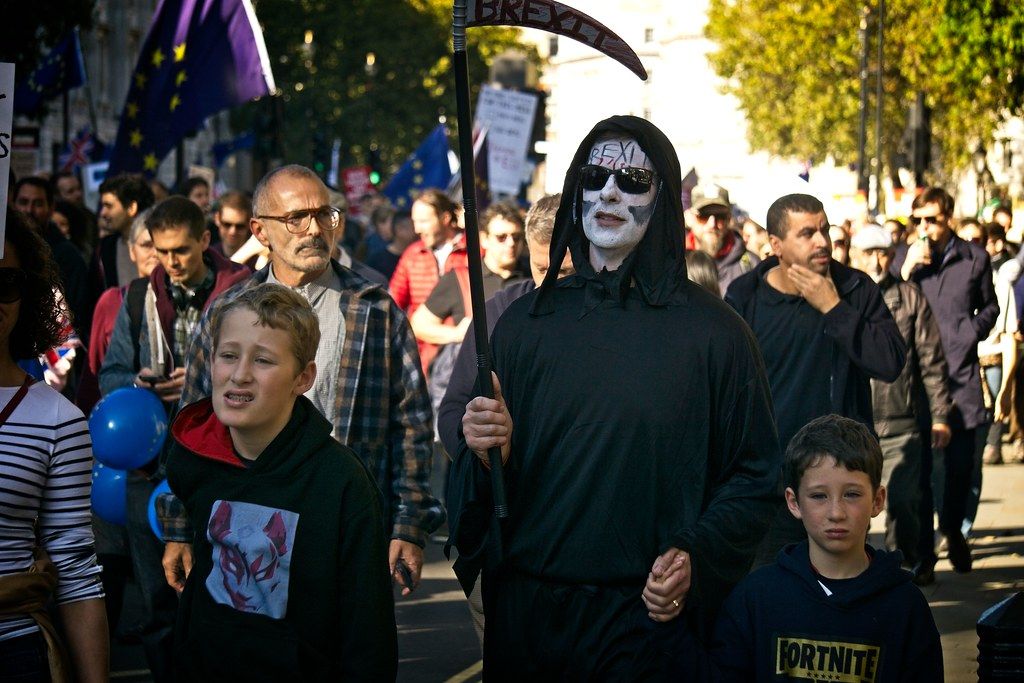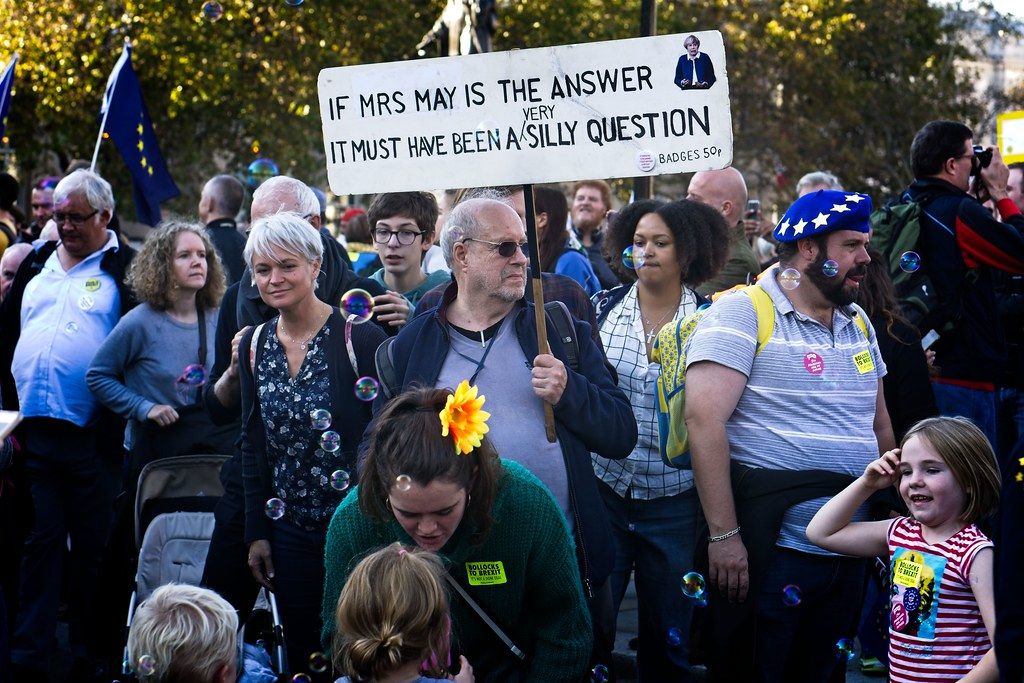The Bullet Does Not Announce Its Trajectory
The most powerful feeling that extremely middle-class people have isn't revulsion, snobbery or insecurity. It's a curious sensation that can best be boiled down to "why wasn't I consulted?"

It's true (certainly historically) that the middle-class have been the focus of a lot of political campaigning and concern. This may be less true than it used to be now all the parties are undergoing their own respective ideological and structural metamorphoses, but I think it's still worth having a think about not just the middle-class, but the extremely middle-class; the class fraction that's often the swing part in swing constituencies, and what it is that motivates them.
The most powerful feeling that extremely middle-class people have isn't revulsion, snobbery or insecurity. It's a curious sensation that can best be boiled down to "why wasn't I consulted?" I live in Brighton, which is itself pretty middle-class, but I worked for seven years in Lewes, which is "why wasn't I consulted?": the town, and so I've see this sort of thing a lot.
It is often an entirely worthy instinct when directed upward—qv. Tony Benn's five questions—however insufferably it might be expressed: witness literally anything happening to the schools in Lewes without extensive parental consultation. However, when combined with a certain sort of snobbery, you get, e.g. the response to the Brexit vote from the kinds of people who have suddenly decided to start going on marches and going to meetings because, well, how could this happen? This is all because of a bizarre coalition of our elderly relatives and some People Up North, they shouldn't be allowed to make decisions; take it to the courts, do it again; I demand to see the manager.

Note: I am here talking about a certain subset of those politically activated by Brexit. Much as I might find Brexit as a politically activating issue slightly strange given the many more immediately materially salient issues on offer to most people, I do understand that there are some to whom it is immediately materially salient (e.g. European citizens living in the UK and vice-versa), others for whom it coincided with their initial political engagement and was the most flavoursome issue, etc.
For the rest, though. If you're used to everything in this country running through you to some extent (possibly relevant here: Lewes is a Lib Dem/Tory swing constituency), or happening for your benefit with only the most marginal involvement from you, I can see how this would be a bit of a shock to the system. (However much I think a lot of this is a more cultural revulsion, it's certainly curious that the only issue that seems to energise these people is the one that might actually affect them directly, whether via wine prices or the difficulty of holidaying in the South of France or of their children taking part in the Erasmus programme, etc.)
I am not generally in favour of plebiscitary democracy and the outcome in this case was definitely not my preferred option, however I have accepted the outcome. I do not find comfort or interest in the New European, in James O'Brien, in the relentless drumbeat of online opinion about how the plebs just don't know what's good for them. That years of everything being tilted in your favour is going to lead to the folk from whom it was tilted away pulling any lever that will either pull it back or fuck you over seems quite intuitive. (The idea that elderly shire-Tories will do anything to distance us from an institution that's kinda run by the French and the Germans, and against which the right-wing press have been waging a hate campaign since before I was born seems equally so, yet oddly they seem to have escaped as much opprobrium—but maybe I've just not been looking in the right places.)

Nevertheless, I sometimes find myself thinking like this sometimes. "How can the world change around me like this? It never did that before." I had an impoverished but still culturally middle-class upbringing. There were some visible difficulties (and many more hidden from me) but I still had by all accounts, a stable, pleasant childhood. Furthermore, I thrived in school, and the school environment—in the kinds of schools I went to, at least—trains student to expect stability, regularity, predictability. It trains successful students to expect an upward trajectory. (No doubt this is orders of magnitude more true in fee-paying schools.)
When this is disrupted, it causes upset—yes, because of whatever the material setback in question is, but moreover because it's a break with almost all your experience heretofore. Failures, setbacks and humiliations tend to be trivial in nature and limited in scope—but take on an outsized importance in the mind because the lack of an appropriate scale on which they can be judged. Actual significant negative events come as enormous psychic shocks.
It also, I think, perhaps inculcates some ideas that what you think is important is what's important. In a million small ways, a middle-class upbringing tells you: this is what matters. If it falls out of those parameters, it doesn't matter—and what doesn't matter can't hurt you. So, when people who do care about other things—who, by definition don't matter—do things that affect the things that you care about, this breaks the frame somewhat. They don't see it coming. The bullet does not announce its trajectory.